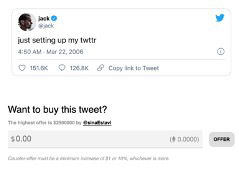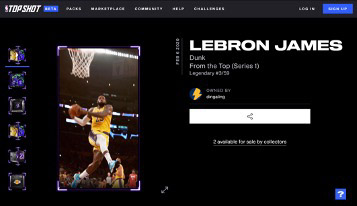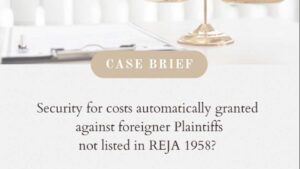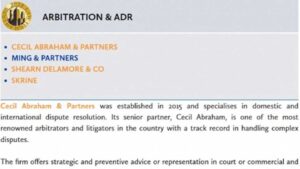
Introduction
Amidst the Covid-19 pandemic, NFTs had quickly rose to prominence and taken the world of 2021 by storm, especially when NFTs are now being sold for millions of dollars. Digital artist Beeple sold his NFT artwork ‘Everydays – The First 5000 Days’ for US$ 69 million and the first tweet ever by Twitter’s CEO, Jack Dorsey was sold for US$ 2.9 million[1].

*For illustration and education purposes only.
What is NFT?
Non-Fungible Token (NFT) is a digital token issued on the blockchain that certifies a digital asset to be unique and not interchangeable, therefore ‘non-fungible’.
Fungible assets such as money or shares are interchangeable for equal value. If you lend Person A one RM50 note, it does not matter that Person A returns you a different RM50 note as you had received RM50 back in value. On the other hand, non-fungible assets, such as land, precious rocks or artistic works are not fungible as each has unique qualities and are not interchangeable for equal value.
NFTs and Arts
The art world particularly had reacted positively towards the use of NFTs for digital arts.
This is largely because NFTs provide authenticity for digital arts. Being a unique token, NFTs can tag or map itself to a specific digital art. Therefore, buyers are able to authenticate the NFTs that they purchased are unique and one of a kind. Think of NFTs as a digital asset that comes with a digital certificate which authenticates your ownership of the purchased NFTs.
NFT Marketplaces for Artists and Buyers
Artist can create or ‘mint’ their artistic works on NFT marketplaces like OpenSea or SuperRare. Once minted, a NFT is issued with a digital certificate to authenticate that particular version of artistic work. The Artist is also now a NFT Creator.
The same piece of artistic work can be minted repeatedly on different NFT marketplaces while each NFT created is different. Artistic works that can be minted as NFTs varies from graphic works, paintings, photography, music, videos, GIFs, trading cards, game skins and other forms of digital assets.
On the other hand, buyers may purchase the NFTs from the NFT marketplaces. What the NFT buyers really purchase is not the art itself or the copyright of the art, but specifically the ownership of the NFT. For example, a buyer may own 2 NFTs of the same piece of artistic work but he does not own the copyright or the art.
NFTs and Copyright Laws
Under the Copyright Act 1987, works eligible for copyright include literary works, musical works, artistic works, films, sound recordings and broadcasts[2].
An artist, being the author of their artistic works retains the copyright. An artist’s copyright includes right to control in Malaysia the making of copies of the works, display and distribution of copies of works to the public for sale and commercial rental of the works to public.
Generally, a NFT buyer does not own the copyright of the artistic work created by the artist and therefore shall not replicate the artistic work for any commercial use without prior written consent of the artist.
A NFT buyer may wonder, what if I posted the NFT Art on my social media to brag, would I infringe the artist’s copyright of making copies and displaying the work in public? This would depend on various surrounding factors, including the term of use in respect of the NFTs between the NFT marketplaces and the NFT buyer, the intention of the NFT buyer (eg: whether it is for commercial use), etc.
To address this issue, NFT Creators or NFT marketplaces usually provide terms of use governing the sales and purchase, copyright and use of NFTs.
For example, Linkin Park’s lead vocalist, Mike Shinoda had sold NFTs of a 75-second clip of his song ‘Happy Endings’[3] granting the NFT buyer limited personal non-commercial use and resale rights in the NFT, while reserving all copyrights of his song[4].
Another example is NBA Top Shot, a digital platform that allow fans to buy, sell and trade numbered versions of specific, officially licensed Moments or Highlights of NBA players. A LeBron James dunk Highlights was minted as a NFT and sold for US$ 387,000[5]. NBA Top Shot’s Terms also clearly states that the NFT buyers do not have the right to reproduce, distribute or commercialize the NFT without prior consent[6].

*For illustration and education purposes only.
NFTs’ Legal Issues
I. Fraud or Misrepresentation as Copyright Owner
One of the legal issues is fraud or misrepresentation as copyright owner. A NFT Creator on NFT marketplaces may not be the original author or copyright owner. In this digital world where art can be easily duplicated, anyone can claim to be the original author or copyright owner and proceed to mint the NFT.
The NFT buyer who purchased such NFT may end up buying the NFT for counterfeit arts and eventually suffer losses on investments.
II. Ownership of Intellectual Property Rights
Without express agreement between NFT Artist/Creator and NFT buyer, the IP rights including copyright would be retained by the NFT Artist/Creator (Mike Shinoda is an example). A NFT buyer that displays, copies, or uses the artistic work for commercial purpose without the copyright owner’s consent would be liable for copyright infringement legal action.
III. Income Tax
Being one of the many digital products, the business/commercial activities surrounding the sale of NFTs would undoubtedly attract income tax.
However, in respect of the resale of NFTs by an individual from his personal collections, it is uncertain as to whether income tax would be imposed on the gains generated from such resale of NFTs. In the event the tax authority adopts the same approach in taxing individual’s gains from shares/cryptocurrencies trading, factors such as NFTs trading frequency, holding period of NFTs, intention of profiting, etc, may be relevant. It is always important for NFT buyers to properly document their profit and loss regarding their trading of NFTs to answer the tax authority if they come knocking.
Conclusion
While Malaysian Courts had recognized Bitcoin as security and commodity under Contracts Act 1950[7], there are no laws in Malaysia governing NFTs at the moment. It is advisable for NFT stakeholders or players to consult legal advice to protect their own rights.
Authored by
Lim Kuan and Loo Hao Han, both Partners of Ming & Partners who acted in a matter involving NFTs for artistic works in Malaysia. They can be contacted via email on limkuan@mingpartners.com and loohaohan@mingpartners.com respectively.













